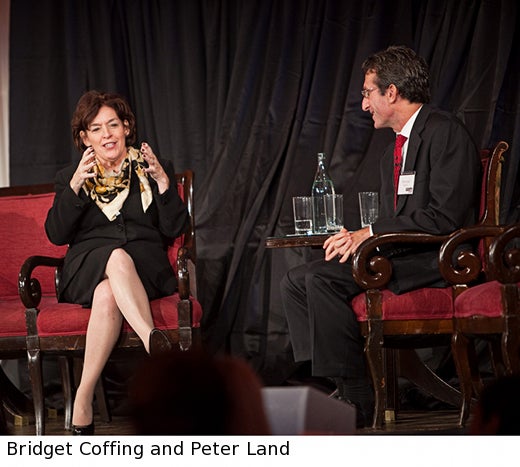 |
| Photo: PRfirms.org |
A strategic assault on organizational silos between brand building and reputation management dominated the Council of Public Relations Firms' 2012 Critical Issues Forum in New York City.. Some 200 PR agency leaders and senior-level executives gathered to discuss the dynamics between corporate reputation, brands and the consumer experience.
Analysis of data from two Harris Interactive polls (The Harris Poll Equitrend survey, which measures both brand equity and associated attributes of over 1,000 product brands, and the 2012 Harris Poll Reputation Quotient Survey, which measures the corporate reputation of nearly 100 companies) provided the framework for the day's panel discussions. Discussions on the convergence of brand equity and corporate reputation to drive purchase considerations and recommendations followed across three industries—automotive, B2B and food & beverage.
In each industry, positive brand equity and positive corporate reputation drove greater purchase consideration and recommendation. But combining the two produced even stronger effects, according to the Harris study.
And so the challenge was set: how can communicators break down silos and better integrate their approaches to building their brands and corporate reputations?
In a panel that covered the automotive industry—in which corporate reputation drives purchase consideration more than brand equity, according to the data—Steven Curtis, manager of corporate communications at Toyota, stressed consistency. "It's important in the brand relationship to consistently define your story to the customer and deliver on your promise," said Curtis. "Increasingly, what we deliver to customers beyond the product is going to be important—for Toyota, local economic contributions are part of our story."
Sara Tatchio, manager of global communications at Ford Motor Company, said that nearly all the major players in the auto industry endured a corporate crisis that "changed things." "In the old way of thinking, reputation was only a concern once it was at risk," said Tatchio. "Now, brand communicators need to make corporate reputation a priority all the time."
During the food & beverage panel, McDonald's' senior VP of corporate relations Bridget Coffing said that McDonald's' brand reputation is driven by the idea that the company is a global brand, but a local business. "Our headquarters is in Chicago, but there's an unwritten rule that we don't talk about our corporate headquarters—the moment of truth happens at every local counter," said Coffing. "Our brand, reputation, image and trust is linked right from the get-go at that moment."
Ketchum CEO Rob Flaherty said that the rise of social media has likely accelerated the process of companies acting transparently, doing the right thing and managing the brand-reputation relationship. "The brand experience has to match the corporate promise. Make sure there isn't a gap between your promise and your delivery," said Flaherty.
Follow Bill Miltenberg: @bmiltenberg
